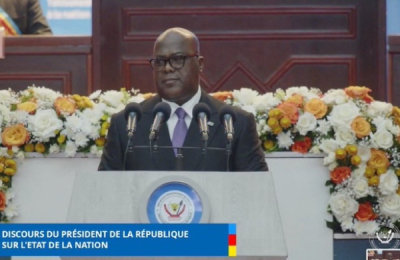The Democratic Republic of Congo is considering a partnership with commercial banks to help finance end-of-career benefits for civil servants eligible for retirement. Jean-Pierre Lihau, Minister of Public Service, Administrative Modernization, and Public Service Innovation, outlined this initiative in an information note presented during the Council of Ministers meeting on July 11, 2025.
The retirement process, which restarted in 2022 with an initial wave of 11,000 retirements, has since stalled. As a result, the number of eligible retirees has grown, now exceeding 314,000 across all pension schemes.
In response, Lihau submitted a ten-year retirement plan, from 2025 to 2035, to the Council. The proposed partnership with commercial banks is an "innovative" mechanism designed to streamline the process. The effective relaunch began with the signing of retirement orders for secretaries-general, directors, and division heads, whose payments and benefits are currently being processed.
Debt-Free Financial Structure
According to the Council’s report, this arrangement would allow banks to advance benefits to retirees. The state would then commit to repaying the banks in monthly installments equivalent to the retirees' former salaries. This mechanism leverages the existing payroll banking system and is designed to avoid any new debt issuance, making it "budget-neutral," as stated in the report.
The scheme is expected to be operational by 2026, following the signing of a memorandum of understanding between the state and the participating banks. This agreement will define the practical terms of the partnership.
An inter-institutional technical commission will oversee the implementation. This commission will include representatives from the Presidency, the Prime Minister’s Office, the Ministries of Public Service, Budget, and Finance, and the National Social Security Fund for Public Servants (CNSSAP). This body will ensure the regularity, sustainability, and automaticity of the retirement process, while balancing the number of retirements with CNSSAP’s capacity for regular pension payments.
Security Spending Constraints
In the 2025 finance law, the state pledged to allocate 20 billion Congolese francs per month, about $7 million, to fund retirements. However, according to Jean-Pierre Lihau, this commitment has not yet been met due to increased pressure on public finances from rising security expenditures. For example, between January and April, over half of the budget allocated for exceptional security spending had already been used.
The total cost of the ten-year plan, 2025 to 2035, has not yet been disclosed. However, the initial draft of the 2025 finance law included a budget line of 379.4 billion Congolese francs, about $128.4 million, for retirement benefits.
This retirement plan comes as the administration faces an overload, a consequence of a massive recruitment wave between 2017 and 2018. During that period, nearly one million employee ID numbers were issued without prior budgetary planning. This situation continues to strain public finances and human resource management. As part of a streamlining strategy, the minister plans to replace only one in two retiring civil servants.
Timothée Manoke (Intern)










